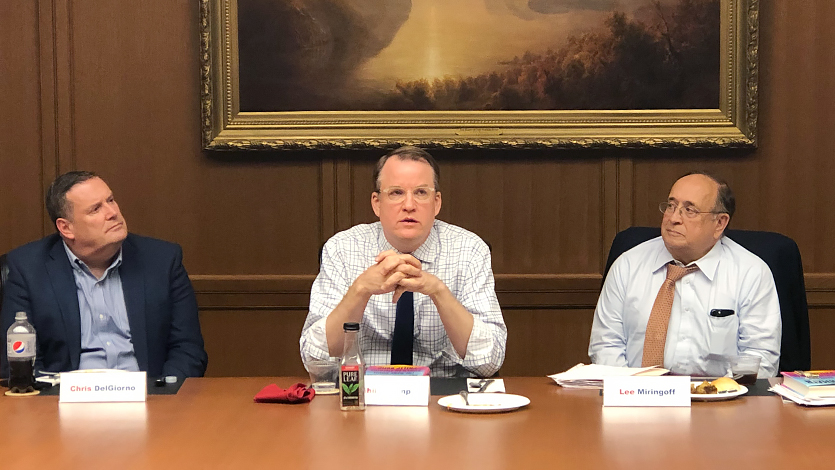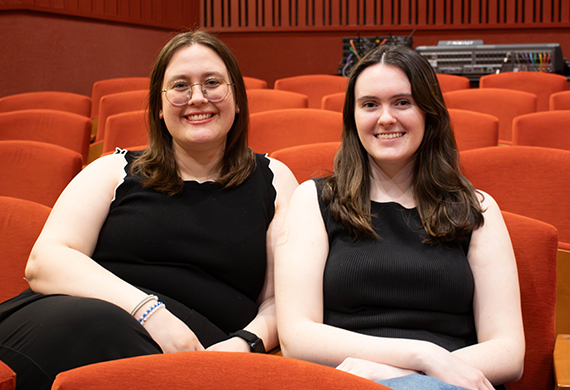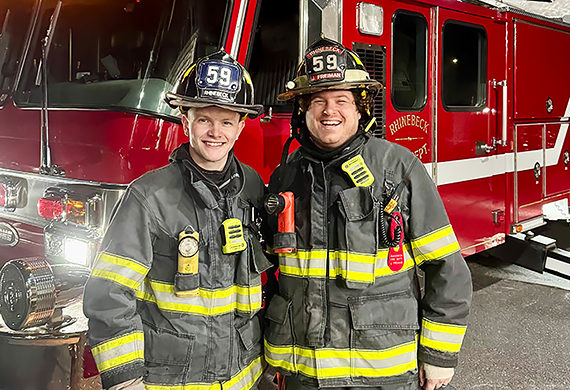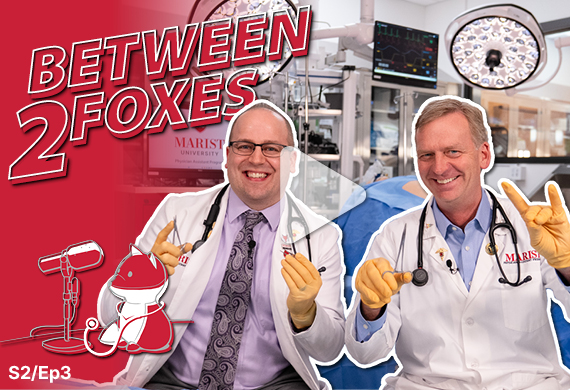Top WashPost Reporter Philip Bump Discusses Generational Impact on Politics and Power with Marist Students

October 16, 2023 — The Washington Post’s Philip Bump, one of the nation’s leading political journalists, stopped at Marist last week, giving insight on politics and society, and sharing career advice with students.
“You should be bold in doing things that you think are interesting, even if it's not necessarily the things that you think you're supposed to be doing,” he told students taking Public Opinion and Politics, a political science course that studies how the general public forms ideas and attitudes about current events, political players, and hot-button issues. It’s taught by Marist Institute for Public Opinion director Dr. Lee Miringoff.
Political science major Matt Pater '25 was intrigued by how well read and inquisitive Bump is.
“One of the biggest lessons from hearing him speak was just to be intellectually curious, because he’s a curious guy himself,” Pater said.
Bringing speakers into the classroom in a conversational setting provides invaluable insight for students, according to Dr. Miringoff.
Philip Bump speaks with students in the Hancock Center. Photo courtesy of Mary Griffith, Associate Director of the Marist Institute for Public Opinion.
“It’s one thing to see me as a teacher. It’s another thing to see Philip Bump, other journalists, and people in politics to get different perspectives,” Miringoff said. “The students will take away from this how someone like Bump thinks about things and approaches important issues. So they get perspective and take that with them in their college experience.”
Bump let students drive the discussion by asking questions, as he shared his passions, and helped them discern what they’re passionate about.
“You can tell that so many students are at the stage where they’re not really sure what intrigues them,” Bump said. “And so it’s fun to be able to be like, ‘Here’s what I’m excited about. And here’s what I think is cool.’”
Photo courtesy of Mary Griffith, Associate Director of the Marist Institute for Public Opinion.
This curiosity led Bump to wonder why generations are defined as they are. He decided to go to what he thought was the definitive source: the U.S. Census Bureau.
“I said, ‘You know, what are the generational definitions? Let’s settle this once and for all.’ And they said, ‘Well, we don’t do that. There’s only one generation that we recognize as an actual demographic, unique and distinctive, and that is the Baby Boomers.’ And that stuck in my head. And so every time I’d see these discussions about generations I would always be like, ‘Oh, that’s all nonsense.’”
This spurred him to write a book called The Aftermath: The Last Days of the Baby Boom and the Future of Power in America. The book examines how power is built around generations, how struggles for resources among generations impact the political landscape, and why the Baby Boom generation has been such a powerful force.
Political science major Athen Hollis ’24 found the talk interesting and relevant.
“It’s going to make me rethink the impact of the boomer generation and generational shifts, and use a new lens to look at political issues,” Hollis said.
Photo courtesy of Mary Griffith, Associate Director of the Marist Institute for Public Opinion.
Even now that his career in political reporting has been definitively established, Bump’s advice to students is to make sure to try different things.
“Just because you’re a political science major doesn’t mean that you need to do political science stuff for a decade, or much less the rest of your life,” he said. “I have done all sorts of jobs — from designer to working for nonprofits to you name it — and it has all helped me understand who I am and what I'm interested in.”
Marketing & Communications intern Jadyn Lance contributed to this story.



